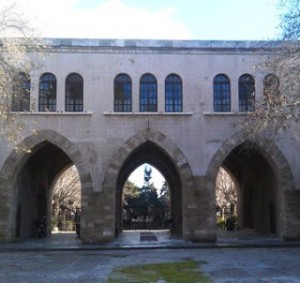This linked to the first plenary and looked at how they designed aspects of the project. There is almost 50% of the population on line across the world and there are massive changes and potential. The learning by design project took account of this when being developed to have knowledge developing communities. The project developed 7 principles to be used when designing programmes:
- Ubiquitous – anytime, anywhere
- Feedback – formative
- Multi-modal learning – text, image, sound and data
- Active knowledge making – design by meaning
- Collaborative intelligence
- Metacognition – thinking about thinking
- Differentiated learning
This plenary focused on the need to make changes due to the migration and immigration changes that had impacted on the diversity in classrooms now in Greece. A project was set up that had 300 schools involved. The project aimed to create and support a community of practice amongst teachers. Several actions were undertaken which included:
- Creating mini consortiums to share issues and draft regional plans
- 20 or 40 hours of language seminars (for all citizens to learn Greek) were developed not focused on general courses but focused on school and education issues these were run for parents
- School counselling sessions were run for parents focused on the education of their children
- A mobile unit was set up so there could be visits to parents homes if they could not come to the school for health or religious reasons
- Different cultural groups were asked for volunteers to act as intermediaries
- There was a parent system of adopting a child from immigrant families to have closer links with children and parents
- Intercultural activities were developed for the end of term to cover all cultures and were used as a learning by design platform
- A network was set up to share ideas and blogs were used
The outcome of the pilots were very positive in fostering communities and integrating families.
The International Conference on Learning is for any person with an interest in, and concern for, education at any of its levels – from early childhood, to schools, to higher education – and lifelong learning in any of its sites, from home to school to university to the workplace.

For all conferences I attend I add short notes to my blog for all to see. I used to have a google blog and so previous conferences are posted on here follow this link to review http://pamconferences.blogspot.co.uk/
